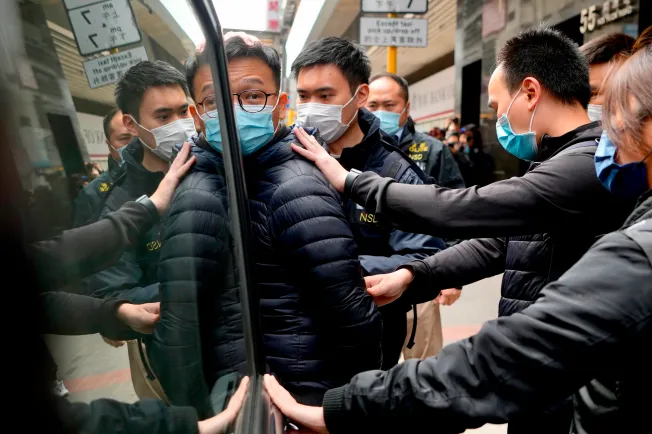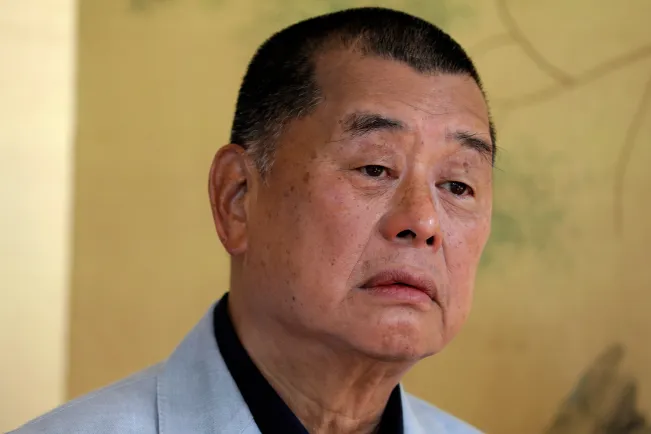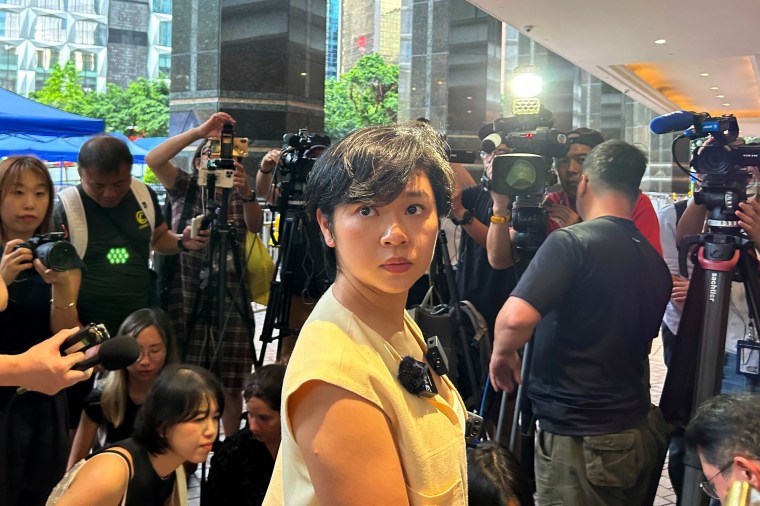New York, August 12, 2024—The Committee to Protect Journalists calls on Hong Kong authorities and news organizations to protect the rights of journalists to report freely and defend their profession at a time the media are facing growing pressure in the city.
“There is no journalism without press freedom,” said CPJ Asia Program Coordinator Beh Lih Yi. “Hong Kong journalists must be allowed to defend their right to report independently without the fear of reprisal or losing their livelihood. If Hong Kong is serious about reviving its slowing economy, then it must improve the media climate swiftly to shake off a reputation as a place with ever-increasing repression.”
In recent months, officials and pro-Beijing news outlets have heaped pressure on the Hong Kong Journalists Association (HKJA), the city’s largest trade union for journalists.
In June, Hong Kong’s security chief Chris Tang accused the HKJA of lacking legitimacy and siding with demonstrators in 2019, while China’s state-backed Global Times in a July report described the group as “disingenuous and dangerous.”
In July, HKJA’s chair Selina Cheng said she was fired from her role at The Wall Street Journal after she was elected to lead the journalists’ union. She had been the sole candidate for the position amid a growing climate of self-censorship in Hong Kong, once a beacon of press freedom in Asia.
Asked for comment, a WSJ spokesperson told CPJ in an email that the outlet made “personnel changes” but could not comment on specific individuals. The spokesperson added that the WSJ advocates for press freedom in Hong Kong, the city which had been WSJ’s Asia headquarters before they were moved to Singapore in May.
Another foreign correspondent and a local nonprofit adviser resigned immediately after they were elected to the HKJA’s executive committee in the group’s election following Tang’s criticism of the union.
Between May 2023 and March this year, Tang wrote eight letters to various international news outlets over their editorials or opinion articles about Hong Kong, some of which he labeled “extremely misleading,” “scaremongering,” and “lies.” Four of the eight letters were sent to WSJ.
A Hong Kong government spokesman said the city’s media landscape was “as vibrant as ever” with over 200 media organizations registered with local authorities, and that press freedom and the right to join trade unions were both protected under the law.
“As always, the media can exercise their freedom of the press in accordance with the law. Their freedom of commenting on and criticizing government policies remains uninhibited as long as this is not in violation of the law,” the spokesman told CPJ in an email.

Lengthy trials
The HKJA is the main journalists’ union in Hong Kong and has been advocating for press freedom since it was founded in 1968, but has been battling dwindling membership and funds after Beijing imposed a national security law in Hong Kong in 2020 that saw journalists arrested, jailed, and threatened.
Among them, the then-HKJA chair Ronson Chan was sentenced to five days in jail in 2023 for obstructing a police officer while reporting.
Hong Kong passed its own homegrown national security law in March, and the U.S. Congress-funded Radio Free Asia shut its Hong Kong bureau days later over safety concerns for its reporters – joining an exodus of media and journalists who left the city since the 2020 crackdown began.
Journalists who remain point to a rising culture of self-censorship in local newsrooms and an increasing hesitation to criticize the government as Hong Kong loses its shine as a leading global financial hub. The city, once the world’s largest IPO market by value for years, saw proceeds raised from new share listings in the first half of 2024 plunge to a two-decade low.
Journalists also face lengthy delays and repeated postponements in their trials.
This includes the now-shuttered pro-democracy newspaper Apple Daily’s founder Jimmy Lai, whose trial on national security charges was adjourned again last month to late November. A representative for advocacy group Reporters Without Borders who went to Hong Kong to monitor Lai’s trial was detained and deported upon arrival.

The 76-year-old has been behind bars since 2020. On August 12, Lai lost an appeal against his conviction for taking part in unauthorized anti-government protests.
Patrick Lam and Chung Pui-kuen, former editors of the now-defunct independent news outlet Stand News are expected to hear the verdict in their sedition trial in late August, after a court in April postponed the long-awaited decision. The duo were granted bail in late 2022 after being remanded in custody for nearly a year.
